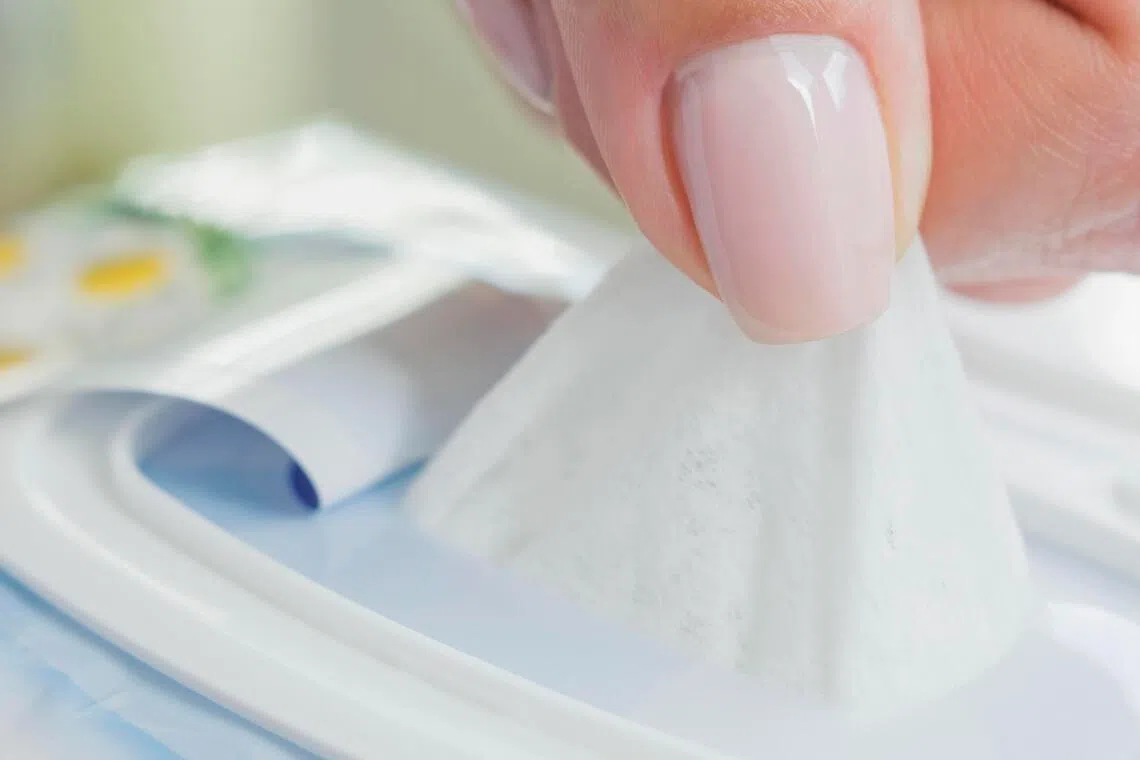Sewer-blocking plastic wet wipes face ban in England
Sign up now: Get ST's newsletters delivered to your inbox

Wet wipes have been found to contribute to 94 per cent of sewer blockages in the UK.
PHOTO: ISTOCKPHOTO
Follow topic:
- England will ban plastic wet wipe sales by early 2027 to reduce pollution, sewer blockages, and protect wildlife, says the UK government.
- Wet wipes cause 94% of sewer blockages, costing water companies £200 million annually; only pee, poo, and paper should be flushed.
- Exemptions exist for medical uses and pharmacies; a future ban on manufacture may occur; "flushable" labels will be removed.
AI generated
LONDON - England will ban the sale and supply of wet wipes containing plastic, a huge cause of pollution and sewer blockages, the UK government announced on Nov 18.
Rivers, lakes and beaches will be cleaner and wildlife “better protected” by the measures, due to come into force in early 2027, an environment ministry statement said.
The announcement comes as public concern about the state of the UK’s waterways and how the country deals with its sewage is growing.
The organisation UK Water Industry Research found that wet wipes contribute to 94 per cent of sewer blockages, some dubbed “fatbergs”, which cost water companies around £200 million (S$340 million) to fix each year.
The measures will only apply to wet wipes containing plastic, which experts say are particularly bad for the environment.
“Plastics in wet wipes makes them stronger and harder to break down, meaning they cause even more issues when flushed and are behind a huge number of blockages,” said Ms Stephanie Cawley, director of customer operations at Severn Trent, a regional water supplier.
“Our message is only the three Ps, pee, poo and paper should be flushed, and putting wet wipes of any kind in the bin will make a massive difference to the sewer network and the communities we serve.”
There are some exemptions – for example, usage by medical professionals.
Registered pharmacies can also continue selling wipes containing plastic as long as they are not immediately visible or advertised to customers.
The manufacture and export of these wipes are also still permitted. But a “further ban” on the manufacture of the wipes could occur once the changes come into force.
Authorities are attempting to get manufacturers to remove the word “flushable” from the packaging of all wet wipes, including those without plastic, to highlight the government’s message about how to dispose of them.
“Every wet wipe flushed down the toilet risks blocking sewers, causing pollution and pushing up household bills,” environment minister Emma Reynolds said.
“The solution is simple: Bin wet wipes, don’t flush them.”
The legislation announced on Nov 18 applies only to England. Wales has already banned the sale of such wipes, and Scotland and Northern Ireland are expected to introduce similar measures by the end of the year. AFP

